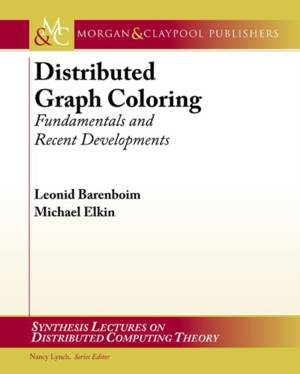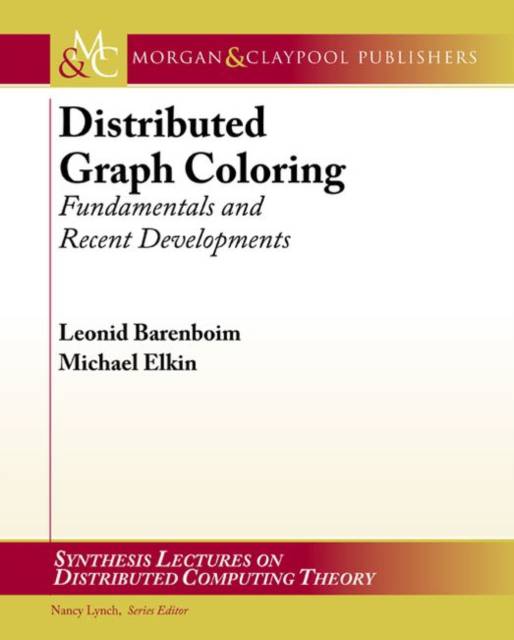
- Afhalen na 1 uur in een winkel met voorraad
- Gratis thuislevering in België vanaf € 30
- Ruim aanbod met 7 miljoen producten
- Afhalen na 1 uur in een winkel met voorraad
- Gratis thuislevering in België vanaf € 30
- Ruim aanbod met 7 miljoen producten
Zoeken
€ 38,45
+ 76 punten
Uitvoering
Omschrijving
The focus of this monograph is on symmetry breaking problems in the message-passing model of distributed computing. In this model a communication network is represented by a n-vertex graph G = (V, E), whose vertices host autonomous processors. The processors communicate over the edges of G in discrete rounds. The goal is to devise algorithms that use as few rounds as possible. A typical symmetry-breaking problem is the problem of graph coloring. Denote by ? the maximum degree of G. While coloring G with ? + 1 colors is trivial in the centralized setting, the problem becomes much more challenging in the distributed one. One can also compromise on the number of colors, if this allows for more efficient algorithms. Other typical symmetry-breaking problems are the problems of computing a maximal independent set (MIS) and a maximal matching (MM). The study of these problems dates back to the very early days of distributed computing. The founding fathers of distributed computing laid firm foundations for the area of distributed symmetry breaking already in the eighties. In particular, they showed that all these problems can be solved in randomized logarithmic time. Also, Linial showed that an O(?2)-coloring can be solved very efficiently deterministically. However, fundamental questions were left open for decades. In particular, it is not known if the MIS or the (? + 1)-coloring can be solved in deterministic polylogarithmic time. Moreover, until recently it was not known if in deterministic polylogarithmic time one can color a graph with significantly fewer than ?2 colors. Additionally, it was open (and still open to some extent) if one can have sublogarithmic randomized algorithms for the symmetry breaking problems. Recently, significant progress was achieved in the study of these questions. More efficient deterministic and randomized (? + 1)-coloring algorithms were achieved. Deterministic ?1 + o(1)-coloring algorithms with polylogarithmic running time were devised. Improved (and often sublogarithmic-time) randomized algorithms were devised. Drastically improved lower bounds were given. Wide families of graphs in which these problems are solvable much faster than on general graphs were identified. The objective of our monograph is to cover most of these developments, and as a result to provide a treatise on theoretical foundations of distributed symmetry breaking in the message-passing model. We hope that our monograph will stimulate further progress in this exciting area. Table of Contents: Acknowledgments / Introduction / Basics of Graph Theory / Basic Distributed Graph Coloring Algorithns / Lower Bounds / Forest-Decomposition Algorithms and Applications / Defective Coloring / Arbdefective Coloring / Edge-Coloring and Maximal Matching / Network Decompositions / Introduction to Distributed Randomized Algorithms / Conclusion and Open Questions / Bibliography / Authors' Biographies
Specificaties
Betrokkenen
- Auteur(s):
- Uitgeverij:
Inhoud
- Aantal bladzijden:
- 171
- Taal:
- Engels
- Reeks:
Eigenschappen
- Productcode (EAN):
- 9781627050180
- Verschijningsdatum:
- 1/07/2013
- Uitvoering:
- Paperback
- Formaat:
- Trade paperback (VS)
- Afmetingen:
- 190 mm x 235 mm
- Gewicht:
- 303 g

Alleen bij Standaard Boekhandel
+ 76 punten op je klantenkaart van Standaard Boekhandel
Beoordelingen
We publiceren alleen reviews die voldoen aan de voorwaarden voor reviews. Bekijk onze voorwaarden voor reviews.











